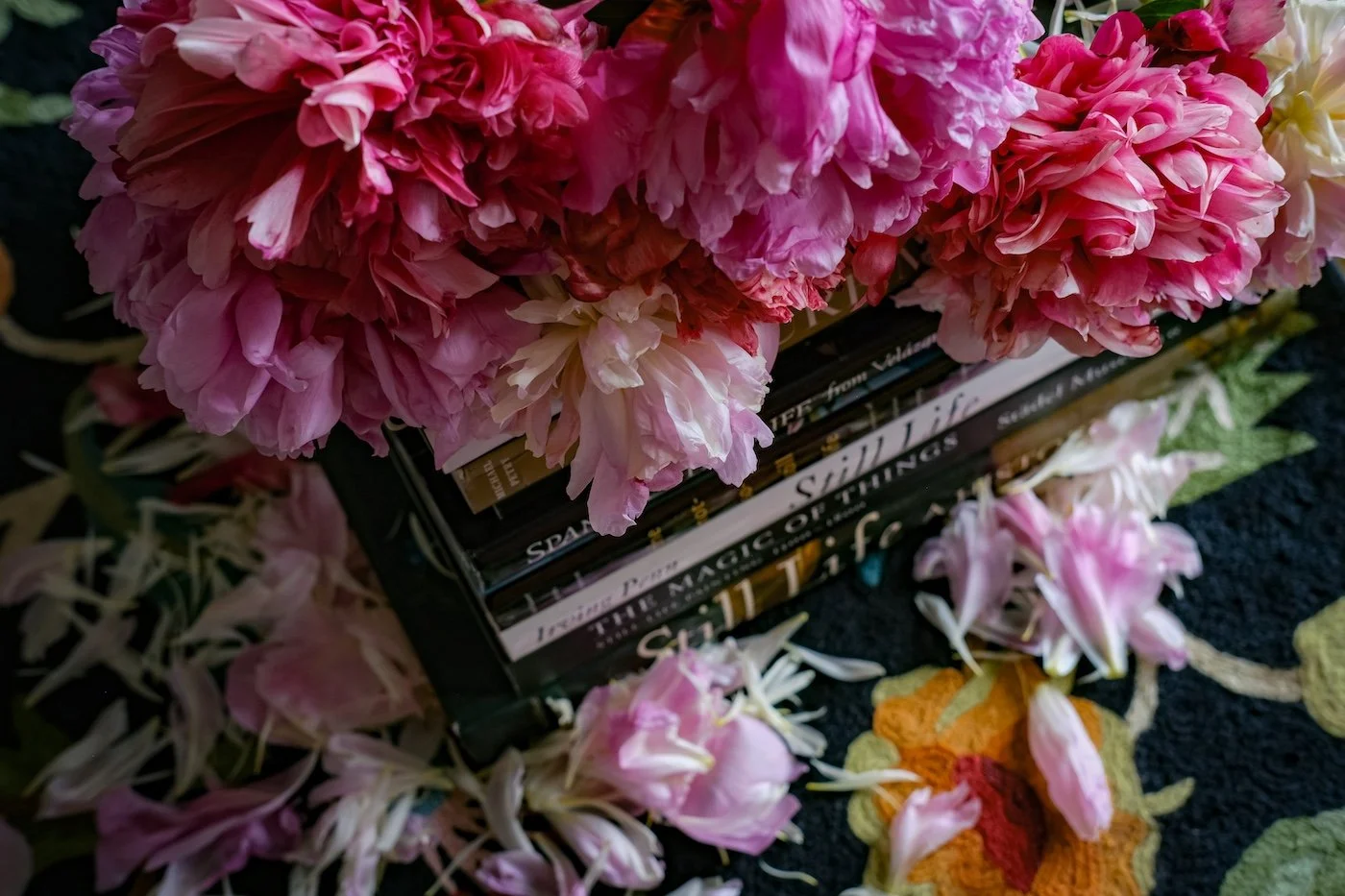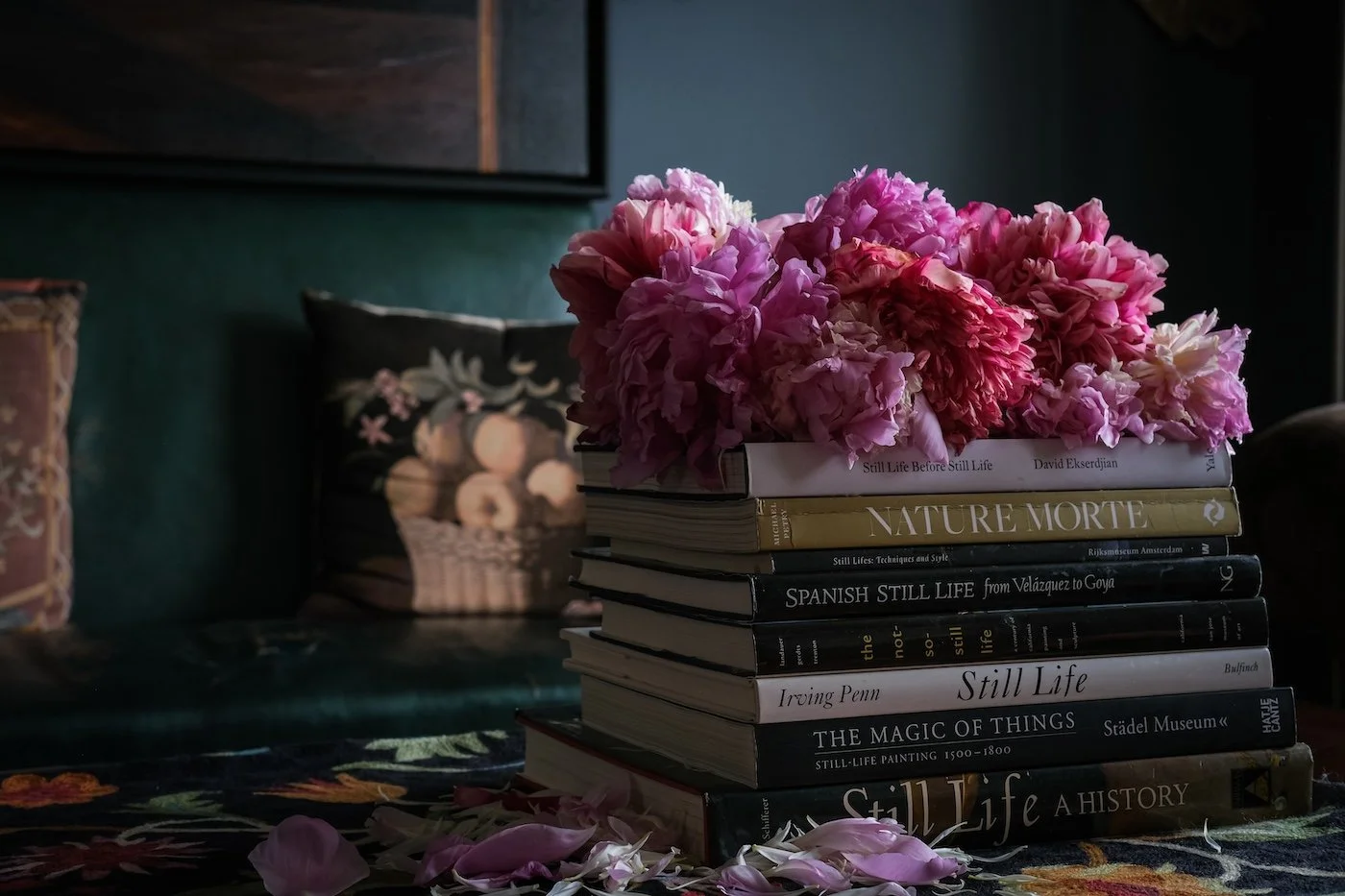Live Like an Artist – Heartstorm
Once in a while I’m lucky enough to be working at a place near enough to home that I can walk. And while I never seem to be in the correct headspace these days to listen to a podcast, the walk is a good time for that. So of course it was On Being, and in this episode, the word “heartstorming” came up. Heartstorming isn’t a new word, lots of folks have used it, but it suddenly felt new, (even if it’s not listed in the OED). Have you ever been in a business-y setting and been part of a brainstorming session? And as a creative you know that something feels off and bad and there’s nothing you can really do about it — you contribute some lame thing or other but you know better, different ideas are right beside whatever it is you’re all obliged to exclaim about. Heartstorming isn’t like that.
Artists and poets especially are the original heartstormers — isn’t that where a lot of art comes from? Of course, I immediately think of the title of Clarice Lispector’s book, Soulstorm. It was CL who said, “For I insist that life is beautiful.” And in Soulstorm she says, “This thing is the hardest thing for a person to understand. Insist. Don’t give up. It may appear obvious. But it’s very hard to understand. For it concerns time.” Heartstorming doesn’t adhere to an agenda and it doesn’t often sit around a table. It comes from the body and it comes from love. Heart = love. It has heart.
The conditions — the CONDITIONS — that allow for heartstorming, well, that’s another post, isn’t it? But it is imperative to have the conditions in place.
CL always leads me to Hélène Cixous, who says, “Writing is a gesture of love. The Gesture.” And, “The text is always written under the sweet pressure of love. My only torment, my only fear, is of failing to write as high up as the Other, my only chagrin is of failing to write as beautifully as Love.”
The thing about attempting to write as beautifully as love, is that one is in the joy zone, in the radiance. One begins to insist, and things happen. Maybe heartstorming is just figuring out new ways for us to be in communication, to generate ideas while insisting on a stance of love, on a stance of the good. I keep writing things in my notebook, like, what are some ways of talking to each other, truly communicating? How to create the conditions where excellence speaks to excellence? What hunger and emptiness can our art fill now? Praise, excess, love, blessings — what happens when we start there?
I also write things down, like: Do not complain; be reverently content; raise a little hell.
I write, in my mad-about-AI moments: Artists will adapt — they always do, always have. Creativity is joyful and tricky and innovative that way!
I tell myself, and I write this again and again, Do not squander and be a good guardian of your gifts. Persistently perceive. I write, you don’t make art so that people will like you, you make art so you can love yourself, and love your life. I write, be a joyful weirdo.
“What if one were to do that? To live life as though one were making art.”
I return next to a book of conversations I love with the poet Li-Young Lee. In it, he says:
“Hunger is an emptiness. That’s why art is necessary. To remind ourselves of our solitude and our silences: that’s our original state. That’s what it comes down to again, then, that art is the practice of our original identity. And our original identity is that universe mind.” He goes on, “I fear sometimes that I think too much and don’t act enough. And, I think, what action is best? It’s the poem. What if one were to do that? To live life as though one were making art.”
And then, and it’s hard not to have a slightly different slant on this as we live in a world so tumultuous, so besieged, so heartbreaking on so many levels. It’s hard not to feel callous. But he says, “Praise. Praise is the state of excess, ecstasy. We counted up all the deaths; we counted up all the dying; we counted up all the terrible things in life, and guess what? There’s still Van Gogh painting sunflowers, there’s still morning glories. There’s an excess in the universe, a much-ness, a too-much-ness.”
He talks about a brimming over, this kind of creativity, that anyone who is creative, who makes things, who is lucky enough to once in a while access that zone, recognizes.
I keep asking myself, how will artists jar and jam the machine? Because they will. We will. And maybe excess, delimiting ourselves, praising the real, maybe this will be part of it.
When someone said many moons ago, a last straw as it turned out, in a former place of employment that those in my position are part of a hierarchy and should just deal with it, I immediately thought of Cixous and her splendid line which is a through-line for my work history: “We who are bits of sun, drops of ocean, atoms of the god, and who so often forget this, or are unaware of it, and so we take ourselves for employees. We who forget we could also be as luminous, as light, as the swallow that crosses the summit of the incomparable hill Fuji, so intensely radiant…”
One must be grateful for last straws.
When you are making art you never imagine yourself as an employee. And if you are living your life as though it is art, you are never an employee.
I write all this to you as an enactment of heartstorming. I write this to you as a fairly brokenhearted human in the year 24. I write this to you having been cradling the black dog in my arms for long intervals and from the stance of grieving one lost job after another. I write as someone who has been in a dark place in a dark time. Many of us know this place. Van Gogh: “I am trying to get at something utterly heartbroken.” I’m a fighting optimist grateful for my travels into the dark because I know the light differently now.
Cixous again: “Fecundity is the creative person’s natural sate. The more pertinent question is that of what inhibits it. Why does one get periods of broken productivity? What causes these interruptions? Productivity, it has to be said, has no reason to be broken except through adverse, exterior circumstances. Why any given society’s fight against creative people?”
And obviously that also hits a bit differently these days, a bit harder.
People who are a party to erasing the creative class don’t even know what they’re losing which I find sad. But the answer to that is excess, is fecundity, is weirdness, is heart, is love, is humanness, is radiance, is joy, is complexity, is INSISTING, is excellence, is a wild blessed abundance, is brimming over, is darkness, is being a luminous drop of sun, a god. The answer is: MORE.
If you enjoyed this post, please consider buying one of my books. If you’ve been reading Transactions with Beauty for a while and have found some inspiration here, consider supporting this love-endeavour by tapping on that tip jar.








